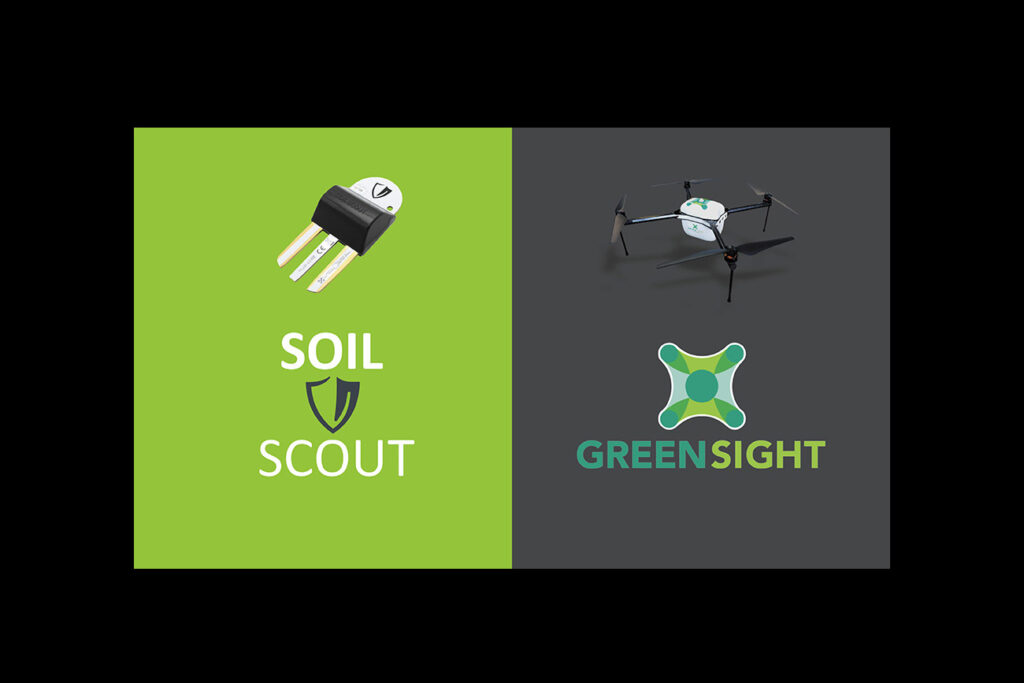Partnership provides below- and above-ground data to turf managers.
Soil Scout has expanded its United States efforts by officially launching its full integration package with GreenSight. The technology partnership gives turf and agronomical professionals a real-time understanding of how to create optimal above- and below-ground conditions while increasing efficiency in water and nutrient usage.
“Our technology partnership has combined Soil Scout sensors with GreenSight’s TurfCloud platform, providing a cutting-edge machine vision analysis of the entire grounds captured by drone-mounted sensors,” Soil Scout CEO Jalmari Taloa said. “Now it’s possible to see everything in their soil – and be able to plan their day’s work – before setting foot outside. This is a major step forward in both smart farming and turf management sectors in the US for Soil Scout.”
GreenSight’s drones have three high-resolution infrared-NDVI cameras, and a radiometrically calibrated thermal camera; paired with an industry-leading flight time of 60 minutes. Combined with Soil Scout’s soil sensors that have solar-powered base stations and repeaters that have a 20-year in-ground battery life, users receive a real-time understanding of their grounds through the GreenSight dashboard.
“We look forward to helping customers manage their soils more efficiently and improve their facilities across the world,” GreenSight CEO James Peverill said. “We’re equally excited to be able to distribute their intuitive soil condition sensors to our growing customer base.”
Soil Scout has also expanded its United States operations with an aim to accelerate its go-to-market efforts and combat the ongoing drought in California while adding feet on the ground in New England, Texas and Arizona with the new hires of Kevin Hauschell, Dan Jennings, Zach Sevens and Joe Lazzaro.
“I’m excited to join the team and bring this incredible technology to farmers, turf managers, vineyard managers, and orchard managers alike throughout the US. In drought years like we are experiencing currently in the Western U.S., making more informed decisions with regards to water is vital,” Hauschell said. “If we don’t start monitoring and becoming more efficient in our water use in industries like golf, viticulture, and farming; we will see golf courses close, farmland sit barren, and wineries close their doors.
“Industries will have to justify their water use to ensure the sustainability of the golf, viticulture, and farming industries in California, so the time is now to use tools that conserve water, improve fertilizer timings, decrease fungicide and chemical use, and increase profitability.”

